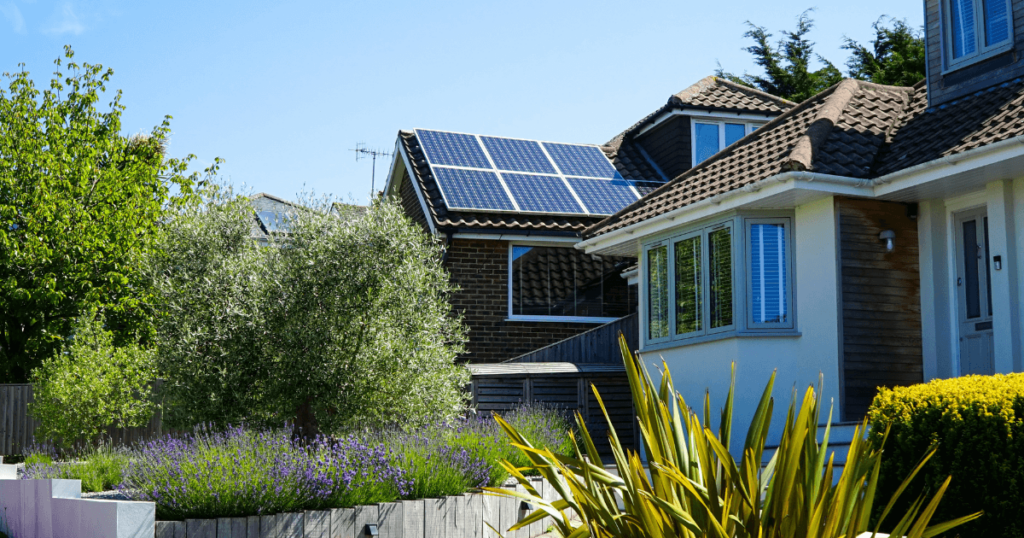The Future of Solar in Florida: Incentives and Benefits

The Sunshine State is the ideal location for residential solar panel investments, with financial, environmental and community benefits. Although the initial cost may turn some people away, Florida homeowners can utilize various incentives to reduce outlays to reap clean energy rewards.
The Current State of Solar Power in Florida
Florida has 230 to 250 days of sunshine annually, perfect for harnessing energy through solar panels. Even with 2024’s El Niño pushing in more low-pressure systems and cloudier days than usual, there is still ample sunlight to power homes and businesses.
The U.S. Energy Information Administration says solar accounted for 5% of the state’s total net generation in 2022, taking third place nationwide for solar power capacity after California and Texas.
Florida is also one of four states operating solar thermal technologies for utility-scale electricity. These technologies utilize mirrors to capture sunlight as it changes positions throughout the day.
Key Incentives for Solar in the Sunshine State
Image from Unsplash.
As the cost of solar materials and products has steadily declined, rooftop solar is more affordable than ever. Homeowners can also take advantage of various federal, state and local incentives to offset the price.
Federal
Solar panels usually cost Floridians about $34,960 for an 11.5-kilowatt system. In 2022, the Biden Administration extended the Residential Clean Energy Credit at 30% through 2032, bringing the price of panels and installation down to $24,472.
Although still expensive, solar panels pay for themselves by eliminating exorbitant monthly electricity bills. Floridians typically run their air conditioning year-round, especially as temperatures rise. With a reliance on natural gas, homeowners have also watched their electricity bills increase by 28% with Duke Energy and 51% with Tampa Electric over five years.
State
The Property Tax Abatement for Renewable Energy Property program protects homeowners from property tax increases as they install energy-efficient upgrades like solar panels, solar water heaters, wind-powered generation and geothermal heat pumps. The incentive expires at the end of 2037.
Florida also eliminates the 6% state sales tax under the Solar and CHP Sales Tax Exemption Program for those who install solar panels.
Finally, the Property Assessed Clean Energy loan program allows homeowners to finance solar panel installations and repay the loan through their annual property taxes. The Solar and Energy Loan Fund is another option for low- to moderate-income homeowners and doesn’t require pre-credit approval.
Local
Residents should also look for local incentives through their county or utility companies. Some may offer individual rebates and grants for financial assistance. Additionally, financing programs and solar co-op opportunities may be available to lower the solar installation cost.
Benefits of Installing Solar Energy
Image from Unsplash.
When homeowners install solar power, they will immediately notice a difference in their energy bills. Even one or two rooftop panels will provide clean electricity and significant savings.
Likewise, keeping the lights and air conditioning on is invaluable in a state prone to severe weather. Americans experienced over eight hours of blackouts in 2020, most of which lasted only 20 minutes. However, Floridians could endure days- and weeks-long power outages after major hurricanes, which are becoming more frequent and intense. Stored solar power ensures homeowners can keep the lights on regardless of the weather.
Environmentally, solar energy lowers a household’s carbon footprint, releases fewer pollutants from avoiding coal and natural gas, and reduces water consumption.
Future Trends in Florida’s Solar Market
The Solar Energy Industries Association Q2 2024 data says Florida has installed enough solar to power 2,013,723 households, while the state’s growth projection estimates another 19,264.76 megawatts (MW) over the next five years.
This outlook comes as Florida Power & Light Co. (FPL) hopes to broaden its solar footprint by 38% by 2033. FPL is the largest power utility company in Florida and a subsidiary of NextEra Energy. In May 2024, NextEra’s CFO Kirk Crews said it intended to add 3,100 MW of cumulative solar through 2025 and make additional investments of $32 billion to $34 billion in Florida’s solar capacity.
Solar Power Gives Rise to Energy Savings in Florida
The future of energy in Florida is solar as homeowners seek electricity savings and lower monthly bills. Of course, by utilizing various incentives to make solar more affordable, residents can enjoy the benefits of clean energy at home.





